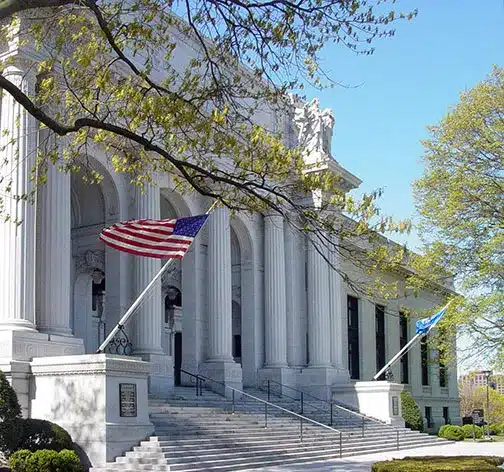PPP Testifies in Support of Connecticut Judicial Nominees

On behalf of the CT Pro-People Judiciary Coalition, PPP Organizing & Network Director submitted the below testimony to the Connecticut General Assembly’s Joint Committee on Judiciary:
Distinguished members of the Committee on the Judiciary, thank you for taking the time to consider my testimony. I am the Organizing and Network Director for the People’s Parity Project, a nationwide network of law students and attorneys fighting for a justice system that works for the people rather than the powerful. I also work with our chapter at UConn Law, and I am a Newtown resident.
I write today on behalf of the CT Pro-People Judiciary Coalition, a group of legal advocates, community organizations, racial justice groups, disability rights advocates, unions, and attorneys pushing for greater professional diversity on the Connecticut state bench. As a coalition, we are not taking stances on individual judicial nominees, but we have analyzed the class as a whole and would like to share our findings.
We are very pleased to see that the current class of nominees is more professionally diverse than many previous classes, meaning that there are more legal backgrounds represented in the experiences of the Governor’s most recent nominees. As indicated in the graphs below, the nominees before you also represent a higher percentage of public interest and other pro-people backgrounds than are currently represented on the bench. Plaintiffs’ litigators, public and private criminal defense attorneys, and others who work most closely with the people most intimately impacted by our laws are well represented in this class, which is a welcome change from previous years, which were heavily weighted toward prosecutors and corporate attorneys representing powerful interests like corporations and the state.
Empirical studies have shown that judges’ professional backgrounds can have significant impacts on the outcomes of the cases before them–and on the people that the coalition represents. These studies have shown that defendants in criminal cases lose more often and receive longer prison sentences when they appear before former. Former corporate attorneys and prosecutors were also found to side with corporations over their employees in employment disputes such as discrimination and wage theft cases. Another study right here in Connecticut showed that former corporate attorneys and prosecutors are also harder on renters in eviction cases than other judges. However, these punitive and entrenched power supporting backgrounds are the exact ones that are overrepresented on the state bench.
As an organization dedicated to making a legal system that works for all people, the state’s imbalanced bench and the consequences of that imbalance for ordinary people are of critical importance to us. We are very pleased to see that the Governor has started to keep these considerations in mind, and although we believe that there is significant work remaining, the current class represents a positive step forward. Professional experiences of the current state bench. Professional experiences of the 2024 class of Superior Court nominees.

Follow PPP
Don’t Bend the Knee: A Toolkit for Big Law Organizing
Pro-Bonus Pledge
PPP’s Pro-Bonus Pledge is organizing law firm associates (and others!) to donate our BigLaw bonuses…

